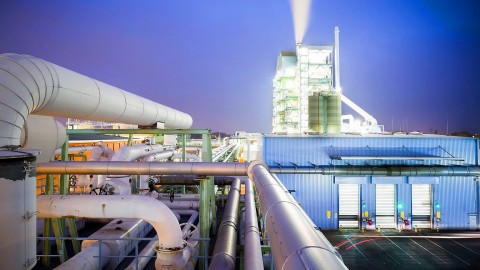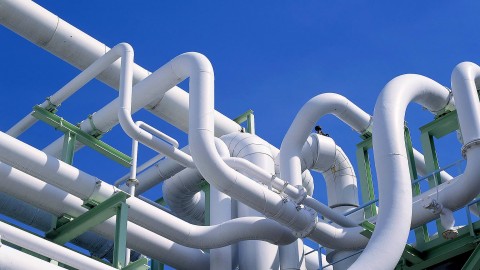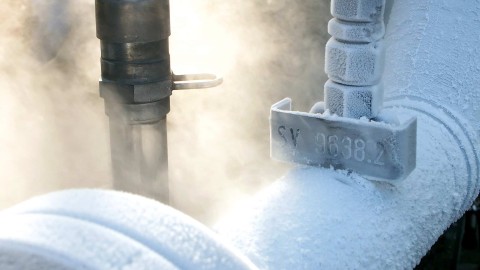Leak check and retrofitting: It’s the operators’ duty
The Europe-wide F-Gas Regulation (EU) No. 517/2014 on the industrial use of fluorinated greenhouse gases aims to reduce emissions of available virgin F-gases and/or their global warming potential (GWP) in the EU by 70 million metric tons of CO₂ equivalents to 35 million metric tons of CO₂ equivalents by 2030.
Fluorinated greenhouse gases are used in the refrigeration industry as refrigerants in millions of commercial and industrial refrigeration, air-conditioning and heat-pump units and systems.
The current F-Gas Regulation, which contains some drastic restrictions and regulations that have to be phased in over the next few years, has significant consequences for equipment and system operators. For example, the operation of existing equipment with some common refrigerants was banned or severely restricted as early as on January 1, 2020. Operators therefore face two options:
Replace the system completely or retrofit it for a more environmentally friendly refrigerant.
We would be happy to tell you about the requirements (including regarding leak checks, record-keeping obligations, F-gas type, regular maintenance, etc.) that you have to satisfy today and in coming years, and where to obtain professional information, advice and services.
New construction or retrofitting of stationary refrigeration systems
The roadmap to gradually reduce available quantities of hydrofluorocarbons (HFCs) (phase-down) stipulates that the charge quantities of new synthetic refrigerants must be reduced by 79 percent from 2015 levels by 2030 within the EU. In addition, all systems that use a refrigerant with a GWP value above 2,500 have been banned since January 1, 2020.
New systems can no longer be built to use the widespread refrigerants R-404a, R-507, R-422a or R-422d. The following refrigerants are available instead:
- R-134a (GWP value of 1,430)
- R-407c/f (GWP value of approx. 1,800)
- R-410a (GWP 2090)
- R-32 (GWP of 675)
Other options include alternative low-GWP refrigerant blends based on hydrofluoroolefins (HFOs) and HFCs. Natural refrigerants (CO₂, NH₃ or hydrocarbons) may be used as well.
In many cases, it is possible to bring the CO₂ equivalent value below the limit by converting the existing system or switching to an alternative refrigerant (often involving some hardware changes). But retrofitting is not always the most suitable and economical solution. Buying a new unit can ultimately be much more cost-effective. Forward-looking options for new equipment include systems using supercritical carbon dioxide and next-generation low-GWP refrigerants (e.g., those containing HFO fractions with a significantly reduced GWP), as well as hydrocarbons, if permitted by the equipment technology and installation site.
Leak checks
Since Regulation (EU) 517/2014 came into force on January 1, 2015, the frequency of leak checks has not depended on the size of the refrigerant charge but on its CO₂ equivalent, i.e. the system’s global warming potential. To calculate this value, the charge weight is multiplied by the refrigerant’s GWP value. That means the equipment’s operator has to recalculate and update the intervals for leak checks. Operators are responsible for the proper performance of leak checks! You can easily calculate the GWP value on this page yourself.
Documentation requirements for systems that require leak checks
The F-Gas Regulation requires system operators to have completed leak checks documented by a certified company. The operator and this company must keep the records for at least five years.
The records are required for systems that require leak checks. They must contain the following information:
- Quantity and type of F-gases
- All quantities of F-gases added during activities such as installation, maintenance, servicing or leak response
- Name and address of the recycling or reclamation facility (with certificate number if applicable) if recycled or reclaimed F-gases are used
- All quantities removed and reclaimed
- The company that worked on the equipment (with certificate number, if applicable)
- Results of the leak check (retest)
- If the system is decommissioned: measures taken to recover and dispose of the fluorinated greenhouse gases
Our advisory and other services
The F-Gas Regulation is highly complex, making it easy to miss deadlines, resulting in serious consequences for system operators (e.g., shutdowns due to missed deadlines, supply shortfalls due to refrigerant scarcity, etc.). This situation is only exacerbated by shortages and the associated price increases. To assist you with all the complicated issues raised by the F-Gas Regulation, we offer the following advisory support and services:
- Examination of your documents and the equipment manufacturer’s documentation
- Comprehensive information and advice on proper refrigerant disposal
- Information and consulting on initial solutions: retrofitting existing equipment or acquiring new equipment
- Planning preparations: supply routes and security, potential for optimization
- On-site service: inventory and assessment of equipment quality and technology, identification of energy-saving opportunities, review and execution of documentation, measurements and leak checks
Would you like to know the best for you to respond to the new provisions and impacts of the F-Gas Regulation? If so, then request a free, no-obligation initial consultation here. Please provide the best time to reach you by phone.
Note: Our services are designed for commercial customers!



